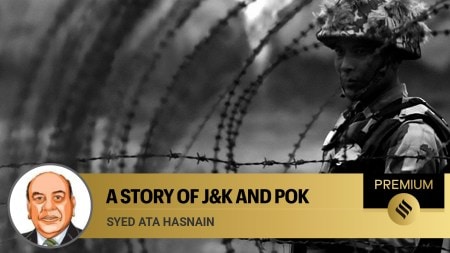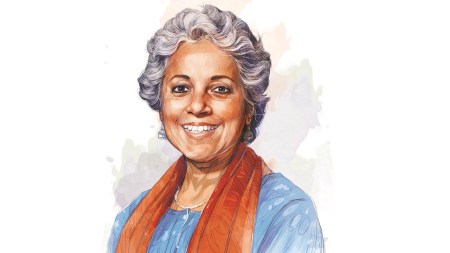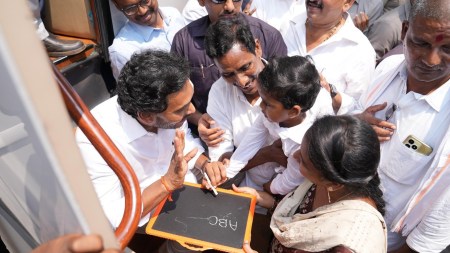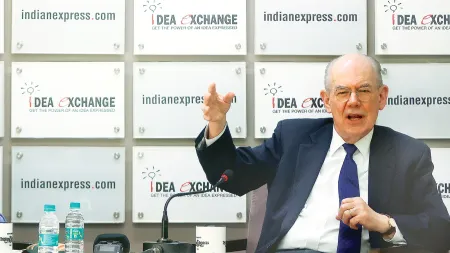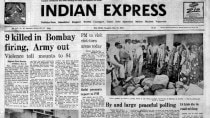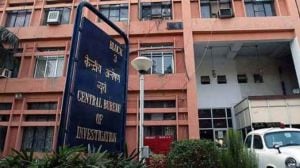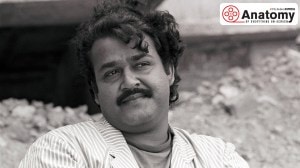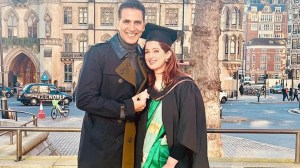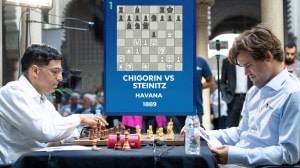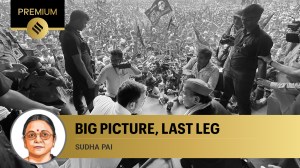- India
- International
Same-sex marriage judgment asks queer citizens to wait for true equality at a future time that may never arrive
To kick the can down the road to majoritarian will and political expediency is not a solution that should be acceptable to anyone.
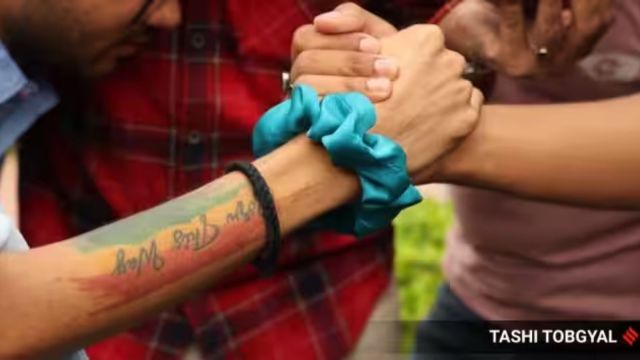 For about the last 15 years, the queer rights movement has enriched the constitutional law of this country. Some of the most cherished constitutional values and rights have been fleshed out with the movement as its springboards at the Supreme Court, writes Ambasta
For about the last 15 years, the queer rights movement has enriched the constitutional law of this country. Some of the most cherished constitutional values and rights have been fleshed out with the movement as its springboards at the Supreme Court, writes Ambasta The prominent civil rights activist Dr Martin Luther King Jr once wrote in the context of African Americans’ struggle against segregation, “For years now I have heard the word ‘Wait!’ It rings in the ear of every Negro with piercing familiarity. This ‘wait’ has almost always meant ‘never.’ We must come to see, with one of our distinguished jurists, that ‘justice too long delayed is justice denied.’” These words may now hit much closer home to many queer citizens and their allies in the light of the Supreme Court’s judgment in the marriage equality case.
For about the last 15 years, the queer rights movement has enriched the constitutional law of this country. Some of the most cherished constitutional values and rights have been fleshed out with the movement as its springboards at the Supreme Court. We are talking of the ideas of constitutional morality, of decisional privacy and autonomy, and of the substantive right to dignity. In that light, the Supreme Court’s ostensible abdication of its responsibilities appears particularly disappointing. Simultaneously, the Court seems to have rolled back some of its earlier holdings on the right to marriage for all citizens, not just for the LGBT+ population.
The majority decision in SC’s judgment was ultimately unable to grant any of the reliefs sought by the petitioners. It held that there was no fundamental right to marriage, nor could the Special Marriage Act (SMA) be held unconstitutional; and upheld adoption guidelines that effectively bar unmarried couples from adopting a child. Undoubtedly, the right of transgender persons to marry under the law, where such marriages would mirror heterosexual ones, was upheld, but this merely followed an earlier decision of the Madras High Court.
The Supreme Court held that the task of amending the law on marriages belongs to the legislature, and it would be exceeding its constitutional authority to rework these laws to allow same-sex marriages. It also held that since the SMA was enacted only to provide for heterosexual marriages which were inter-caste or inter-religion, it could not be argued that it was discriminatory and needed to be struck down. Further, since the Act is progressive in nature, much harm would be caused by declaring its provisions unconstitutional.
Throughout the judgment and the multiple opinions of individual judges, it is clear that the Court at least appreciates the magnitude of infringement of the rights of queer people by not according them the right to marriage. This acknowledgement is clear where some of the judges advocate for a right to form a union recognised by the law, and even the majority accepts it in principle. We have full reiteration of the rights to equality, dignity, privacy, and life that were already declared in judgments earlier. But this enunciation of rights does not evolve beyond mere repetition. These are platitudes that would have been appropriate to a lesser court and not one which had previously demonstrated vibrant constitutional imagination in similar issues. The Supreme Court could have declared the Act unconstitutional to the limited effect of the petitioners’ claims, or it could have issued a suspended declaration of unconstitutionality which would have forced the legislature to act. The Court fully acknowledges, in abstract, the rights of queer couples to equal treatment before the law, dignity, and of the numerous tangible and intangible benefits of the institution of marriage, but refuses to ensure any of these rights to a clear case of legal discrimination or to craft a suitable remedy.

The Court also attempts, on thin ice, to distinguish its judgment from previous occasions where it had clearly entered into the legislative domain, such as in Visakha and Common Cause. None of these arguments are very convincing, but what is particularly disheartening is that the Court seems to have agreed with the Union of India (UoI) stand that to allow for same sex marriages would open up numerous laws to alteration, a complex exercise, which would be best left to the legislature. It is not clear since when mere administrative convenience and ease of application became determinants of constitutionality.
It must also be understood that the Court’s apparent solution, which is to accept the government’s undertaking of forming a high-powered committee to look into what rights of association can be granted to India’s queer people, is unsatisfactory. Such a committee has no basis in any statute, nor does it have any set time frame or terms of reference determined by the Court. It is no substitute for constitutional adjudication especially for a minority group. To kick the can down the road to majoritarian will and political expediency is not a solution that should be acceptable to anyone. The question to be additionally asked is whether the bar is indeed so low that a mere undertaking made by the UoI becomes the principal relief that the Court hands out?
The judgment in effect asks that queer citizens wait for true equality; that they wait for a time when it may be thought fit to grant us rights that belong to other citizens by default. A “wait”, that given the UoI’s arguments in Court, may actually mean “never”. In 2018, while reading down Section 377 of the IPC that criminalised same-sex intimacy, Justice Indu Malhotra had poignantly observed, “History owes an apology to the members of this community and their families, for the delay in providing redressal for the ignominy and ostracism that they have suffered through the centuries.” I venture a guess that Justice Malhotra was also referring to the Supreme Court, which had upheld the same provision criminalising homosexuality five years earlier. We were told to go to Parliament in 2013, as we are being asked to do now.
The writer is Assistant Professor, National Law School of India University, Bengaluru
EXPRESS OPINION
More Explained
May 21: Latest News
- 01
- 02
- 03
- 04
- 05


